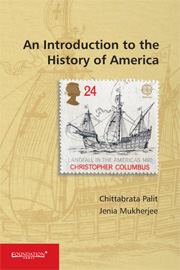Book contents
- Frontmatter
- Contents
- Preface
- Timeline of Events
- 1 An Early History: From Settlement to Colonization
- 2 The American War of Independence
- 3 The Formative Period: The Era of Solidarity and Expansion
- 4 ‘Two Americas’: Regional Differences and Sectional Conflicts
- 5 Agrarian and Industrial Revolutions
- 6 Resisting Voices
- 7 American Foreign Policy: Post-Monroe Doctrine to World War I
- 8 The Great Crisis and Its Recovery
- 9 The Rise of America: WWII and After
- 10 The Quest for Equality
- 11 American Environmentalism and Environmental History
- Epilogue: Perceiving American History Beyond the ‘Exceptionalist’ Framework
- Index
6 - Resisting Voices
Published online by Cambridge University Press: 05 April 2014
- Frontmatter
- Contents
- Preface
- Timeline of Events
- 1 An Early History: From Settlement to Colonization
- 2 The American War of Independence
- 3 The Formative Period: The Era of Solidarity and Expansion
- 4 ‘Two Americas’: Regional Differences and Sectional Conflicts
- 5 Agrarian and Industrial Revolutions
- 6 Resisting Voices
- 7 American Foreign Policy: Post-Monroe Doctrine to World War I
- 8 The Great Crisis and Its Recovery
- 9 The Rise of America: WWII and After
- 10 The Quest for Equality
- 11 American Environmentalism and Environmental History
- Epilogue: Perceiving American History Beyond the ‘Exceptionalist’ Framework
- Index
Summary
It is a saga of social activism and political reform against the excesses of corporate capitalism. Various strands of resistances have been explored from populist trends in the agrarian context to middle-class progressivism to moderate labour organizations like American Federation of Labour to politically motivated radical Marxist labour organizations like Industrial Workers of the World. The chapter explores the heterogeneity in socialist challenges as the nation moved on to its mature stage of industrial (including monopoly and finance) capitalism.
a. Agrarian Anxiety and Populism
The wrenching changes in American economy and society in the post-Civil War period and the rise of big business created two polarized worlds within the nation creating an affluent class and a distressed community who were untouched with the benefits of industrial and national growth. Populism emerged as a political ideology of struggle that pitted ‘a virtuous and homogeneous people against a set of elites and dangerous ‘others’ who were together depicted as depriving (or attempting to deprive) the sovereign people of their rights, values, prosperity, identity, and voice.’ The Granger Movement mainly in the Mid-West can be considered as a prelude to the ‘Farmers Alliance’ and the formation of the Populist Party in America.
- Type
- Chapter
- Information
- An Introduction to the History of America , pp. 135 - 166Publisher: Foundation BooksPrint publication year: 2014

